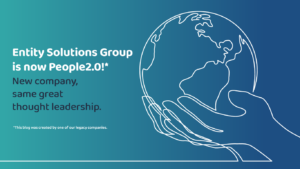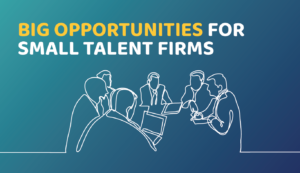Daily life has been turned upside down for all of us due to the COVID-19 pandemic and new ways of living, working and connecting have quickly become the norm.
Whatever big changes you are adapting to personally, from new working arrangements, to reduced income, unexpected job loss, or the cancellation of long-awaited travel or events; chances are your budget has been upended too. Even though things are changing rapidly, it’s important to take some time to review your cash flow and revise your budget in line with new realities.
With many Australian households having high debt and low savings, getting cash flow under control at a time like this is a big challenge. Research from the Grattan Institute shows 50% of working household have less than $7,000 in rainy-day savings and right now, it’s pouring. FMD clients and those who already have a good financial plan will be better prepared with healthier budgets and balance sheets that can withstand the setback, but others will need to get their budget in shape first.
The specific financial challenges and opportunities will differ depending on your stage of life and personal situation. Here are some tips to you get you started.
For those still working
Income is your greatest asset during your working years and if you’re lucky enough to still have a strong income, you can use the changed working circumstances to possibly put in place something that has been challenging when spending temptations are easier to come by. How you adapt your budget now could make a big difference to your long-term financial position.
If your income has remained the same or similar, but you are now working from home there can be a positive impact on your budget too. Transport costs, breakfast or lunch in cafes and Friday night drinks have all evaporated and you won’t be taking that winter holiday anymore. Instead of going to the movies or the footy, you’re more likely to be going for walks, cooking at home and putting your Netflix subscriptions to good use. Although you’re probably spending more on groceries with everyone eating at home, overall you may find your family budget is in surplus (or at least, less of a deficit!).
There are all the additional savings that add up too. Reducing the amount of take-always you have, making coffees and meals at home, not jumping in an Uber for a night out and not hitting the shops and purchasing extra things you don’t really need. These savings can be directed towards a more significant financial milestone like topping up superannuation or paying down your mortgage.
A plan for paying off credit cards/debt, especially for those with buy-now-pay-later commitments is also a great idea. It’s worth noting that AfterPay reported record sales in March and retailers are relying on it to help them survive the crisis by increasing online sales. While it’s natural that much of our spending will shift online at the moment, it is important to budget for that spending and not build up additional debt at a time when future income flows are uncertain for many people.
For those facing career transition
Going through unexpected career transition is personally and financially challenging at any time but in the current circumstances, it’s even harder. Making sure you’ve got enough cash to fund your short to medium-term expenses will be the first priority and that typically means pulling back on discretionary spending too. On the positive side, laying low due to COVID-19 restrictions will make it easier to go without holidays, gym visits or restaurant meals without feeling like you’re missing out.
Putting any redundancy payment or savings you have available into a cash account or a mortgage offset account and paying yourself a regular direct debit replicates the structure of a salary (albeit at a lower figure) and may make it easier to stick to a new budget. After doing this, if you still have the capacity to reduce debt like credit card balances or personal loans, now is a good time to do it.
The government has doubled the fortnightly job seeker payment from $550 per to $1,100 to assist people who have lost their job due to the pandemic. That said, those who have always worked will find the experience of dealing with Centrelink for the first time tough going. As we all know, work isn’t just about income, it’s an important part of our self-identity and purpose. Nobody saw this external crisis coming and someone in this position needs plenty of support, both emotionally and financially. We know these are extraordinary times and that utilising any safety net offered should be accepted with the comfort of knowing that’s what it’s there for.
For those working toward retirement
We know that travel adventures, golf, volunteering more and spending time with family and friends are some of the things our clients enjoy most about their hard-earned retirement. With these activities off the agenda for a while, you may be spending less money, so it could be a good time to reduce your income. The Government has halved the required minimum you must draw from your account-based pension for this and next financial year to make it easier to ensure you don’t unnecessarily erode long-term savings.
In addition, as asset values are now more likely to be lower (based on share market and other asset price movements) retirees could be eligible for a higher Age Pension entitlement. It’s also worth noting from 1 May 2020 that deeming rates are also being lowered. This could mean some who miss out on the Age Pension may now be eligible for the low-income health care card. Click here for more information on the low income health care card concessions and who is eligible to apply.
On the expenses side, it is a good time to speak to all your utility providers, banks, Internet providers and insurers to make sure you have the right services and are getting the best deals to meet your needs. No doubt many people will also reconsider international travel plans for the next couple of years and instead budget for local travel, which has the added benefit of supporting our fellow Aussies and our economy when the country eventually reopens for business.
Looking to the future
Looking ahead, it’s fair to assume the COVID-19 crisis may have a lasting impact on our attitudes to income and spending, just as war time did on earlier generations.
Making more conscious spending and lifestyle decisions could ultimately result in an overall increase in household savings. We may be careful to save more and be better prepared should we see another life-changing event like this.
Our ability to earn a stable and reliable income will also take on a new meaning and we will recognise our income as one of our most valuable assets (not to mention our health) and the foundation of realising our financial goals. Indeed, we may see the world a little differently and be grateful for our fortunate lifestyle.
Need more advice?
Contact your FMD adviser, Nick Stanley, to arrange a free financial health check.

Nick Stanley, Senior Financial Adviser – Melbourne CFP® BCom GDipFin
Nick specialises in providing strategic advice in relation to superannuation, retirement income streams, wealth creation, personal and business insurance, investment portfolios, managed funds and asset allocation. Nick has been involved in the financial services industry since 1998. Prior to working at FMD Financial, he was employed in various roles within the superannuation and wealth management areas of a global consulting firm. Nick commenced his employment with FMD Financial in April 2007. He has a Bachelor of Commerce degree as well as a Graduate Diploma of Financial Planning and is a Certified Financial Planner™ professional.
Schedule some time with Nick.
About FMD Financial
We’re a team of qualified, experienced financial advisers in Melbourne, Brisbane and Adelaide who want more people to enjoy good health, wealth & happiness. We can’t give you the formula for financial success but we know from 15 years’ experience working with highly satisfied clients that making the right move in six key pillars of financial management can help you achieve your goals. Our proven advice process and open and transparent fees can help you take control of your finances, bring you greater peace-of-mind and improve the lifestyle you can afford at every stage of life.
This article has been prepared by FMD Financial and is intended to be a general overview of the subject matter. The information in this article is not intended to be comprehensive and should not be relied upon as such. In preparing this article we have not taken into account the individual objectives or circumstances of any person. Legal, financial and other professional advice should be sought prior to applying the information contained in this article to particular circumstances. FMD Financial, its officers and employees will not be liable for any loss or damage sustained by any person acting in reliance on the information contained on this article. FMD Financial Pty Ltd ABN 64 153 896 078is a Corporate Authorised Representative of FMD Advisory Services Pty Ltd AFSL 232977. The FMD advisers are Authorised Representatives of FMD Advisory Services Pty Ltd AFSL 232977.



